A Conversation With .. Matt Andersen
The East Coast blues guitar-slinger talks about his upcoming album, the thrill of working with Los Lobos and Nashville's best players, and why he feels at home in the South.
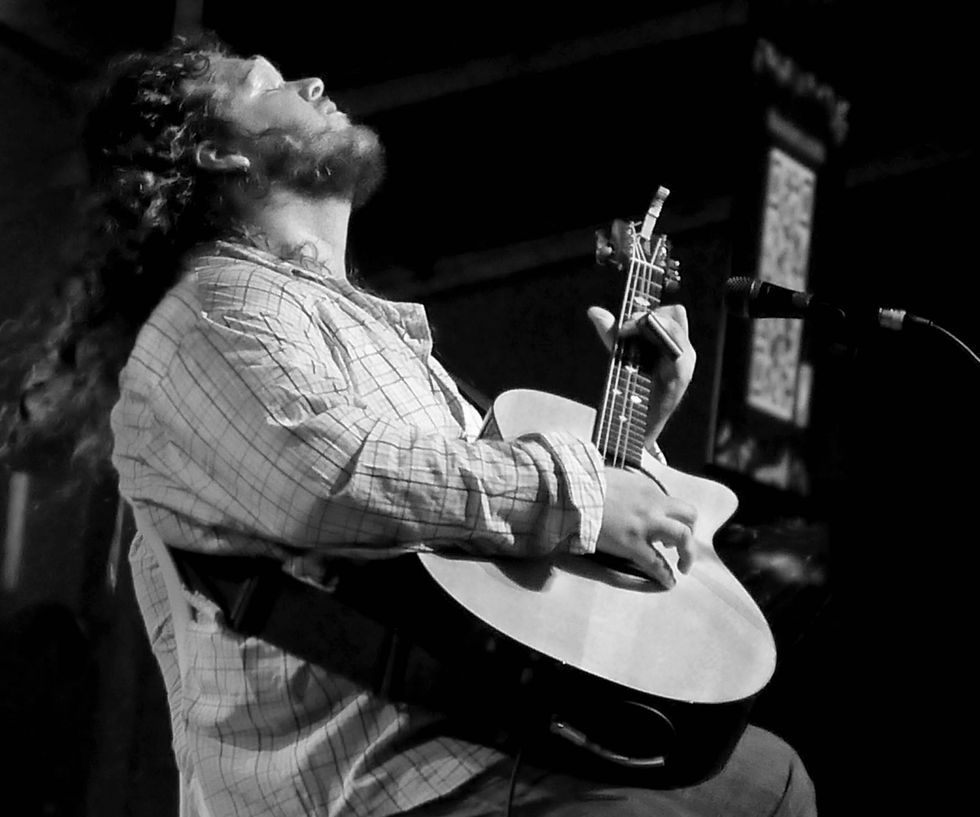
By Bill King
I attended the Toronto Blues Society: Blues Summit 9 this past week and thought to myself, 'this is a seriously aging crowd,' until I took a seat representing the Beaches International Jazz Festival for the speed sessions which run four minutes and each participant gets an opportunity to introduce themselves and sell themselves to potential entertainment buyers; mostly summer festivals. That’s where I got a view of where the future lies.
A good portion of these applicants were young and compiling a travel schedule of 100 – 150 dates a year. Not bad, all things considering. Most of the groundwork is self-inflicted, yet a portion was guided by close friends eager to get into the “buy and sell” business. However you look at it, it’s a grind. Here’s the keeper – the players love what they are doing, and none see themselves cutting into Taylor Swift's or Drake’s market. It’s all about the music!
This is where guitarist and singer Matt Andersen comes to mind. Matt’s been pushing through more territory than the early explorers setting up stakes wherever possible and every year or so returns to reap the rewards. We sat down on the last day of the summit and caught up on his next moves.
Bill King: Getting busy for you?
Matt Andersen: Yeah, it’s gonna start being pretty busy. Last year was pretty chill, but this year is gonna be hopefully busy.
What do you mean by 'chill' in this context?
I had some stretches when I was home for two or three weeks at a time which is pretty weird. It was good because I haven't had that kind of time off for years.
Did you structure your schedule that way last year?
We knew this year is going to be big so a lot of places we had to kind of stay out of.
You go back every two years or so?
It’s the album cycle kind of thing unless it's a festival season. That's my manager. They don't want to go in the same place over and over again. You know, it’s the strategy.
How far have you been able to expand your touring outreach?
Australia would be the furthest, but I go to Europe a couple of times a year. I am going there in March.
Europe feels good?
Yeah. It's been going great. Germany and Holland are pretty decent. I don't lose money like I used to. It used to be we lost money going over there, but it's getting better. Fans over there, when they latch on, they stay with you.
Canada has been solid for you.
Yes, but there’s always room to grow everywhere. It's definitely been that Canada kind of funds everywhere else I go. The U.S. is getting better. We’ve got some pockets that are oddly great and some that are not as good, but it's getting better. We’re starting to get some festival interest.
I've had some great opening opportunities down there, and I've done a bunch of stuff with Buddy Guy and Los Lobos. I've never met Buddy. I’ve opened for him probably I'd say close to twenty times. It was perhaps twelve times before I even saw him in person because it was always like he's an older dude and stays on his bus. I'm signing CDs at that point and by the time I come back he's on stage. His crew is all great, and his band's great too.
I’ve played his guitar before soundcheck for them.
Who have you found to be the most accessible of the iconic figures that are still around?
Los Lobos are great and really cool guys. Steve Berlin who plays with them produced one of my albums, so I had a bit of an in there. The Old Crow Medicine Show was great. Beth Hart was really cool. She's probably the busiest person I know and getting bigger all the time.
Samantha Fish?
I’ve seen her on a couple of festivals down there. I don’t think she comes up here very often.
I'm always fascinated with that cigar box guitar she plays. Do you play one?
I've got one at home. Mine’s a cigar box New Brunswick license plate. I got them to make me a six-string. It's a pretty, you know, a honky kind of thing.
What do you play these days?
When I do the solo show it's all acoustic, and I’ve got a Lakewood I play, and I've been playing for the last 15 years or so. The electric is whatever I pull from the collection.
Are they made just for you?
There are guys who make them in Germany, and I picked out the model I wanted. I’ve got to two identical ones. One’s “Poncho” and the other, “Lefty.”
The new album that's coming, Halfway Home By Morning, seems to have some of that Stax Records soul thing going for it.
It wasn't like when we started; we said we wanted to make a Stax album but it's when you start throwing horns onto it, and that’s the players' history and their natural home. A couple of guys are from Nashville - one of the guys is from Muscle Shoals, and they play with everybody. During session breaks, we sit and listen to them talk. “Remember when we were out with Waylon?” It was like, come on guys, I played a legion hall before we came here. They were just fantastic. The last session they all worked on together before mine was Paul McCartney. They're just heavy players. They’ve played with everybody and are kind of “First Call” guys. We did everything live off the floor with them and the horn players too. It was great to have everybody create the music together and push record and have it all fall together.
Did they lay out the horn parts themselves?
I sat there with the acoustic, and we'd run over the tunes, and they didn't touch the horns - just write stuff down and talk music. They spoke about inversions of stuff, and I had no idea what was going on but my producer Steve could talk to them. It was great. They were at another level than I'd never seen before.
The rhythm section?
Mike Farrington from Halifax, who I’ve played with a bunch. Steve Dawson played guitar and is the producer. Chris Gestrin from Vancouver was on keyboards. Drums is Jay Bellerose. He's played with everybody - first call for a lot of producers. He was on break from Alison Krauss before he came in and played with us. He did that Alison Krauss and Robert Plant album Raising Sand.
When you get with players of that calibre, the pocket is different.
Yeah. You can have great players, but not always do great players play well together. I mean, most everybody plays together well, yet it doesn't always sink in like that. But it really did. Mike and the drummer Jay hit it off. Jay and I locked in really well, so everything kind of fit. I put a lot of faith in Steve when he was lining up players because he knew who'd be the best person for the project.
Choice of songs. Did that come before recording or during the session?
Everything was before. I was writing songs, and some songs were coming the week before going down. I've done albums where I've had just enough songs, but this time, I had an overflow.
It all starts with the acoustic guitar?
I write everything on the acoustic. We wanted to make sure this time the album was focused around me and my guitar, and if you took it all away, the song would still be solid - just a vocal and guitar.
Is there a central theme to the album?
No, it's just a collection songs. They're all written in the same period so there's probably some things that kind of rub against each other, but I've never gone for a theme. I kind of feel like that might be constricting a little bit. If you are blocking out different things to focus on one thing, you don't know what you’re going to be blocking out and I don't want to do that.
How would you describe the lyrics, the stories in these songs?
Relatable. There's nothing in there that's far, far out. It’s issues that I see that I don't like or personal experiences for sure and a couple about relationships. Everybody's got those stories.
Do you find through travel the lay of the land or spirit of the place inspires you to write a certain way?
Some places have a weird quiet. Some places can be noisy and still feel like they're quiet. I don't know that it's just that. Where you are can affect the writing, and I find different people bring different feelings to the table. I've done a lot of co-writing.
Have you played New Orleans?
I did the House of Blues down there a few years ago and opened up for Old Crow.
The Heritage Jazz & Blues Festival comes at the end of April again.
Yes, I was there during Jazz Fest and but not part of it. The House of Blues gig was separate. It was probably three or four years after Katrina maybe and I could pick up on the vibe down there. I haven't been down personally anytime. I want to go back again.
It's kind of like the magic place. Any Chicago blues clubs or Kansas City?
I haven't done a lot of the club stuff. Usually, if I do club stuff, it tends to be more like a folk club than a blues club. It's kind of where I get thrown into.
I've done a couple of Kansas gigs. There are a few places that I get a chance to go in and jam. I’ve jammed at The House of Blues in Chicago - the City Winery there and a couple of other little rooms, that kind of thing.
How do you how do you find the American audiences relate to what you do?
My home town is on the Maine border, 15 minutes from Maine. It’s an imaginary line for the most part. I don't think it's anything. When you get to places that have a distinct culture like maybe the South or something like that, you can pick up some differences, but I find the East Coast for me is relatable to the south. I see an Acadian connection. It’s a welcoming kind of place and very family oriented and lots of food and fun and music. It doesn't feel weird down there at all.
Did you record in Nashville?
Steve’s place in Nashville. We figured it'd be easier to be down there. We worked at Southern Ground which is Zac Brown’s studio. He's dumped a bunch of money into it, fixed it up, and it's got a lot of history. There are all kinds of master tapes there from Kenny and Dolly – Waylon Jennings, that stuff. They haven't picked them up, but they won't get rid of them in case they come back for them.
It’s a cool space for how we wanted to record live off the floor. It has a kitchen, and they took care of us - had meals ready for us and that kind of thing. Nobody was running out or taking off.
The sound from the downbeat was spot on?
It's a great sounding room, and I'm able to get the separation I need, and still everybody can see each other, so it was great. You know I love being in there. The exciting part is seeing how it all comes together. We did the bulk of it in four days - three tunes a day. Doing “live off the floor” cut down a lot of time for sure, because you're in and do three songs.
Any overdubbing?
The only thing we overdubbed was the background vocals and a little bit of guitar stuff, but everything else was done as we heard when we stepped off the studio floor and that’s pretty much what people are going to hear on the album.

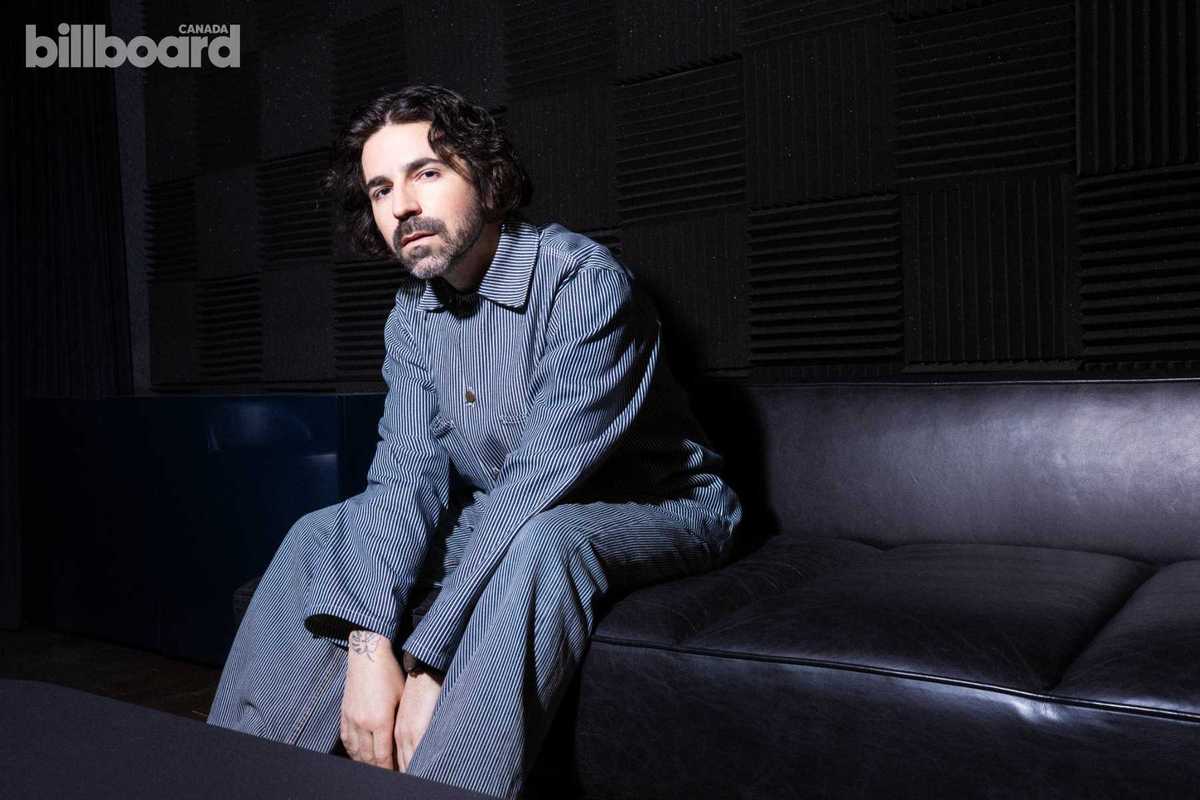







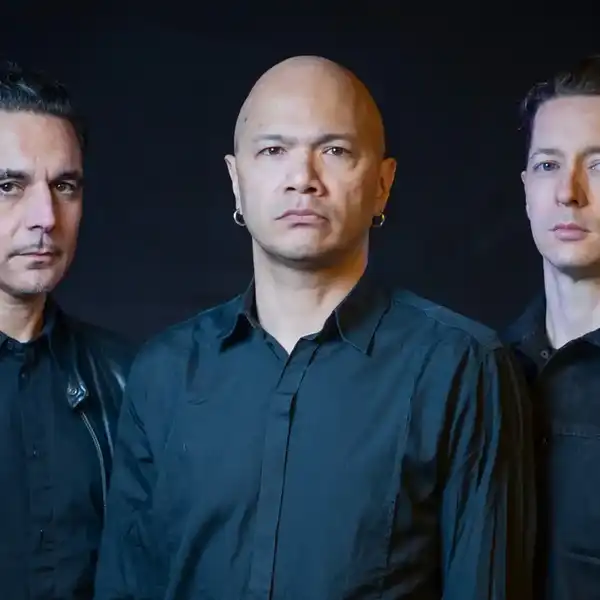








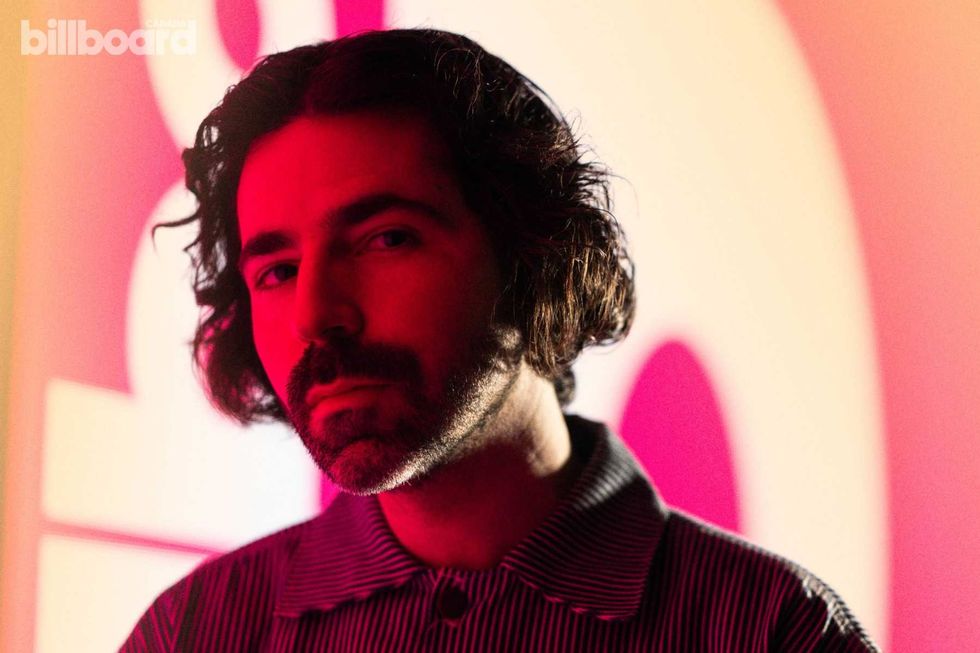 Felix Cartal shot at the W Toronto on Feb. 20, 2026. Lane Dorsey
Felix Cartal shot at the W Toronto on Feb. 20, 2026. Lane Dorsey 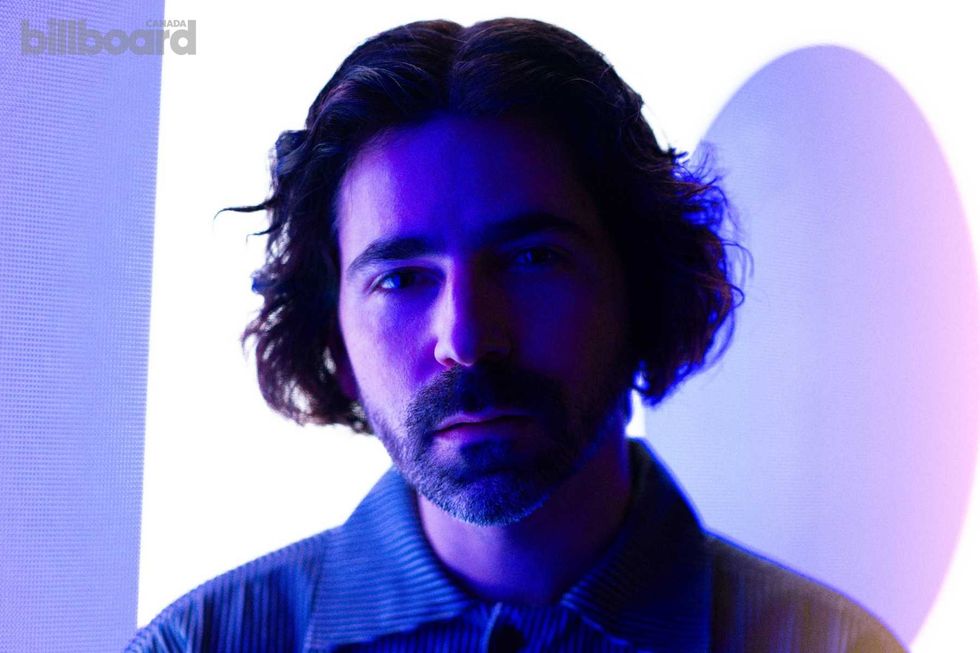 Felix Cartal shot at the W Toronto on Feb. 20, 2026.Lane Dorsey
Felix Cartal shot at the W Toronto on Feb. 20, 2026.Lane Dorsey